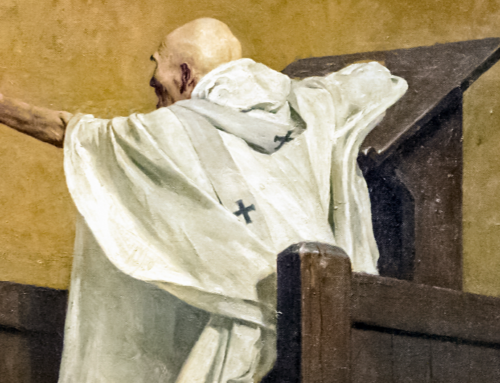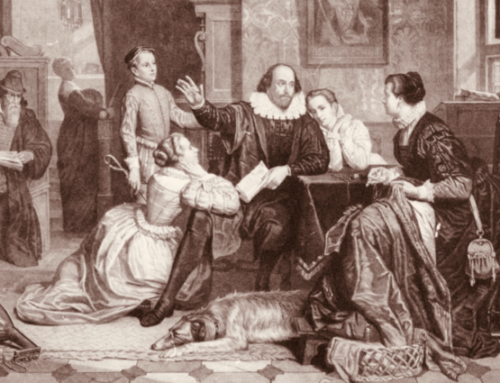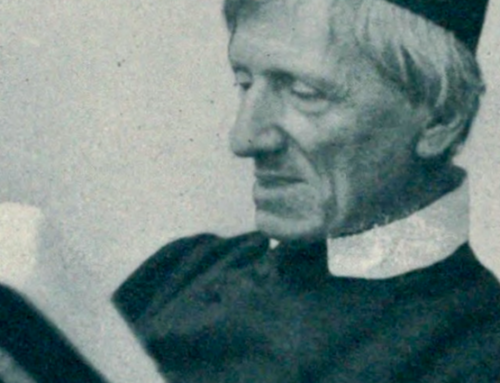 The following is a reply to a letter received from a prisoner, recently received into the Catholic Church, who had previously been involved in white supremacist organizations.
The following is a reply to a letter received from a prisoner, recently received into the Catholic Church, who had previously been involved in white supremacist organizations.
It was good to receive your letter, not least because it’s always good to be in touch with a kindred spirit.
I hope you will forgive the relative brevity of this reply to your longer missive. I am swamped with writing, editing, teaching, and travel commitments at the moment.
First, I must say “welcome home” to the Mystical Body of Christ, His Church.
It seems, considering your own political past, that you and I have followed parallel paths.
Regarding your still holding on to an element of your core beliefs, this need not be a problem as long as those elements do not incorporate a racist view of reality, which places you in a position of aversion or enmity towards others purely on the basis of something beyond their control, i.e. the colour of their skin. I would add, however, that you need not be too hung-up, even if you do have such feelings as a sort of remnant of your past. Such feelings cannot be shrugged off merely as an act of the will. There is an act of healing involved, which requires time and supernatural grace. If you continue to pray that you can love your neighbor and enemy as God commands, you will receive the healing.
Although racism is beyond the pale, there is much that you can legitimately retain of the healthier elements of your former weltanschauung. You can rejoice in the historical communion that you share with all those steeped in the goodness, truth, and beauty of Christian civilization, a continuum rooted in tradition and expressive of all that is best in the human spirit and its turn towards God who is Himself (of course) the source of all that is good, true, and beautiful.
To answer your specific question about the “catalyst” for my change of heart, I would answer theologically (and truthfully) that the Holy Spirit was the catalyst. I would add, however, that the catalytic conversion took the whole of the 1980s because of the deep-rooted nature of the grip that racist ideology had on me. I don’t really know how I can answer this any more fully or fulsomely than I have done in my book, which you have read. I would only say, or reiterate, that I was convinced at the time that the whole process was entirely rational and was rooted in my reading of great writers, such as Chesterton, Belloc, Lewis, Tolkien, Solzhenitsyn, and even anti-Nazi “Nazis” like Otto Strasser. It was only later, with the wisdom and perception of hindsight, that I realized that a process of healing was happening simultaneously with the intellectual progress I was making.
I still believe that the 1948 British Nationality Act, which opened the floodgates to immigration, was an unmitigated disaster, though my opposition has nothing to do with feelings of racism and everything to do with the multicultural mess that has been its consequence. I have referred recently to the ethnomasochism, which hates civilization merely because it is seen as being “white”, as a form of neo-racism, a race-obsessed view of reality which reduces everything to the level of skin-colour. It really seems to make little difference if one is full of hatred because something is white or because it is non-white. The race-obsessed hatred is as pernicious in both cases.
I also enjoy, occasionally, listening to Ian Stuart’s music, at least those tracks that are not poisoned by their own venom, but I witnessed Ian’s psychological shriveling as he disappeared into the ghetto of Nazi-cultism. As he was one of my best friends, this remains a powerful and painful memory. He was, as you say, a “man on fire”, but this is not necessarily a good thing. Hitler was a man on fire and so were the communists of the French and Bolshevik Revolutions. It is always dangerous to play with fire and much better to trust in the fires of love that come from the love of God.
I have taken the liberty of giving you a subscription to the St. Austin Review, the Catholic cultural journal of which I am the editor. If you like it and would like to try your hand at writing something for a future issue, please let me know. It is abundantly clear that you write with a rare eloquence and lucidity and I’d be happy to be the beneficiary, as editor, of the God-given gifts that you’ve been given. In any event, and not wishing to jump the proverbial gun, I’d better wait until you see the magazine before we proceed any further in this direction.
God bless you, my brother,
Joseph
The Imaginative Conservative applies the principle of appreciation to the discussion of culture and politics—we approach dialogue with magnanimity rather than with mere civility. Will you help us remain a refreshing oasis in the increasingly contentious arena of modern discourse? Please consider donating now.







Leave A Comment